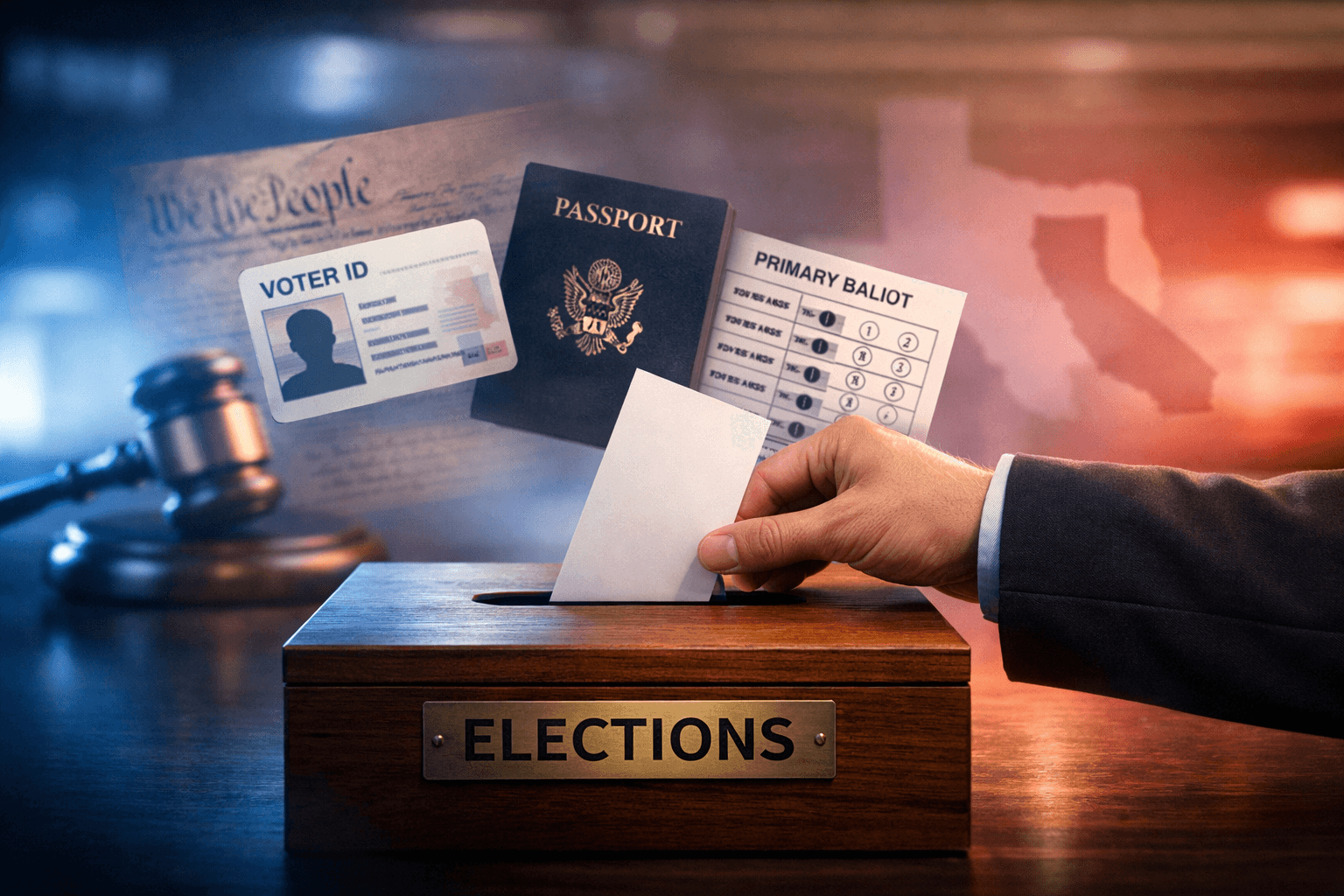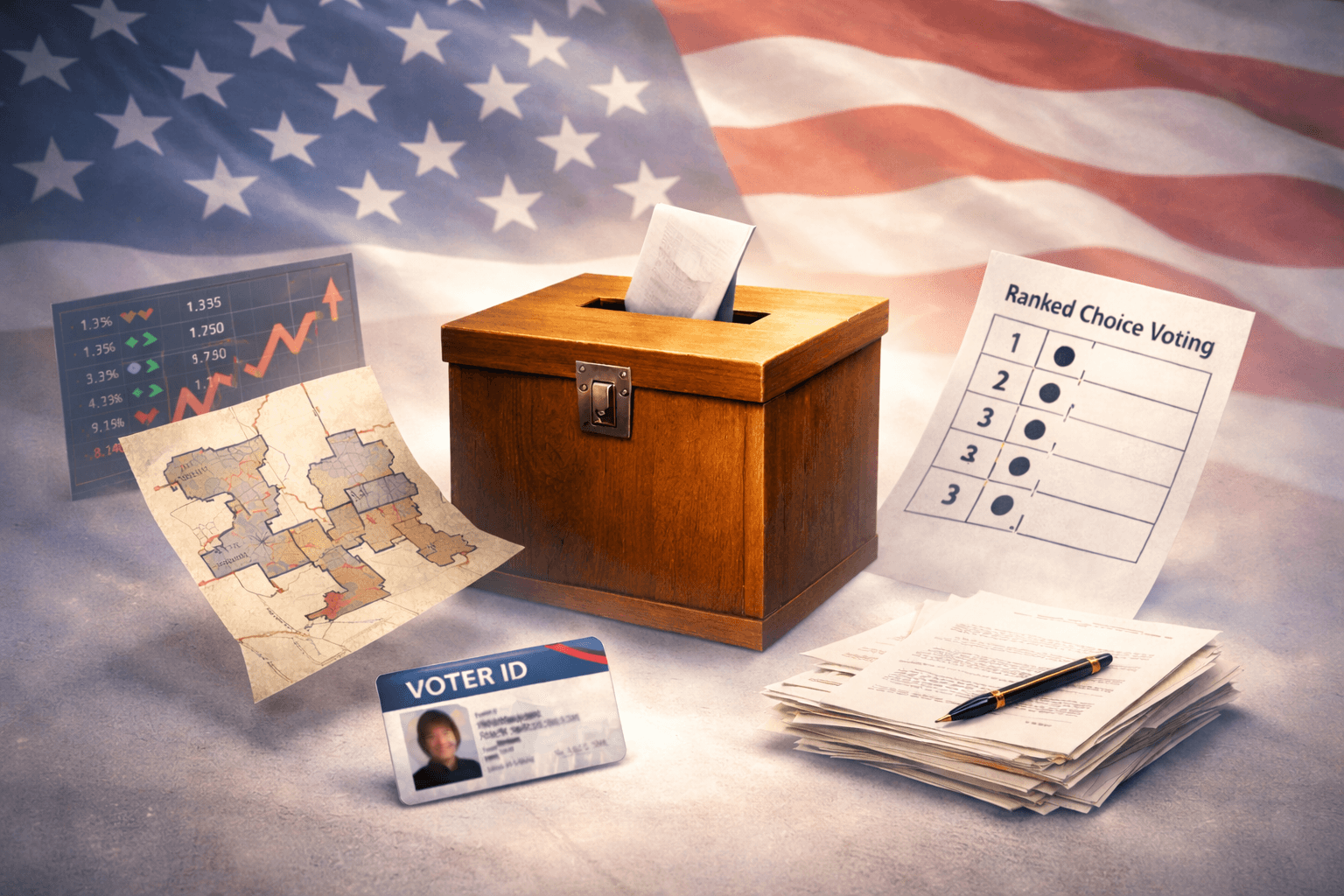Isn't It Weird That Congress Feels No Urgency to Re-Open the Government?
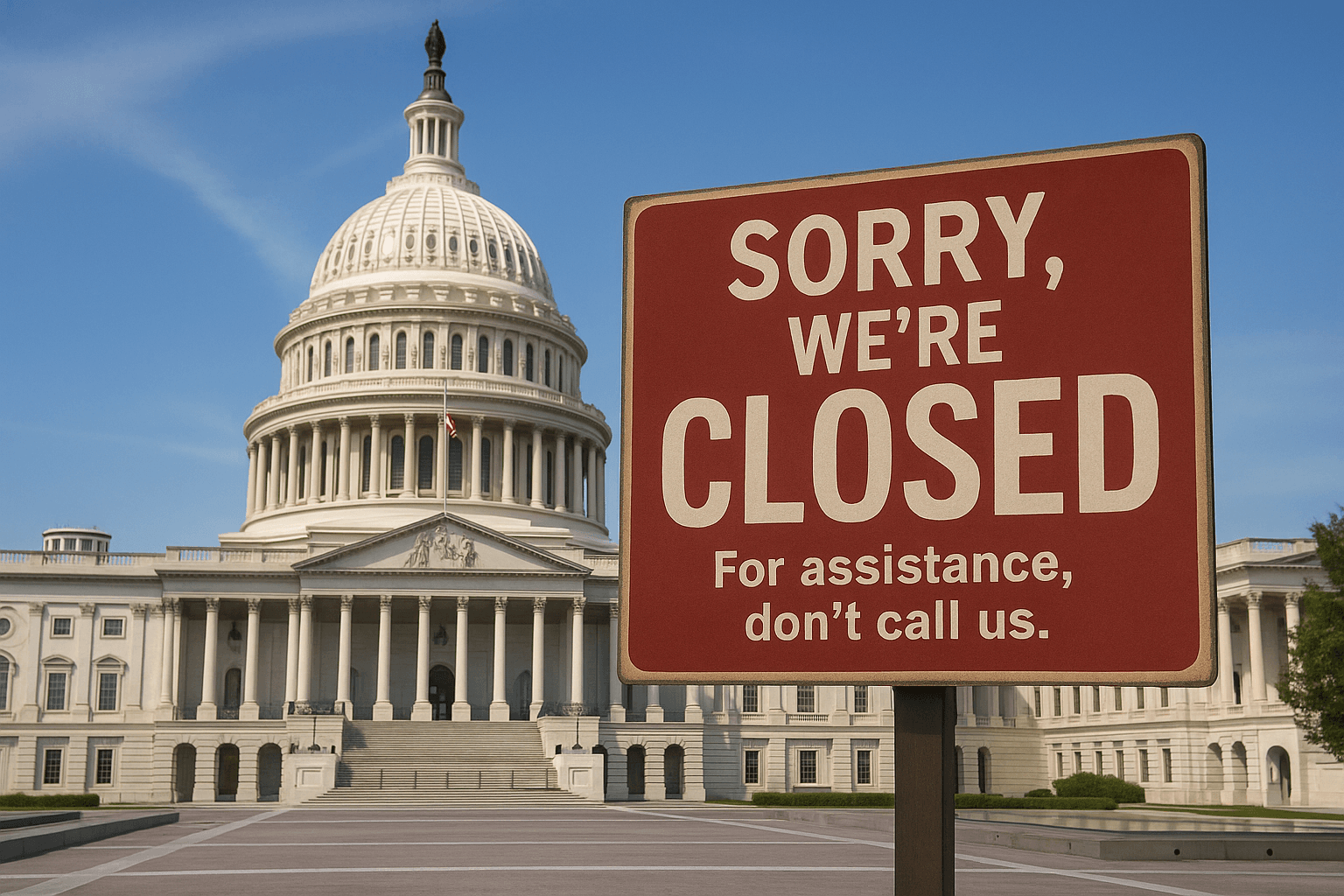
The U.S. has entered Day 22 of the latest government shutdown with no end in sight. As pundits expect it to surpass the 35-day record set during Trump’s first term, a new Gallup poll shows voters’ approval of Congress has plummeted in the last month.
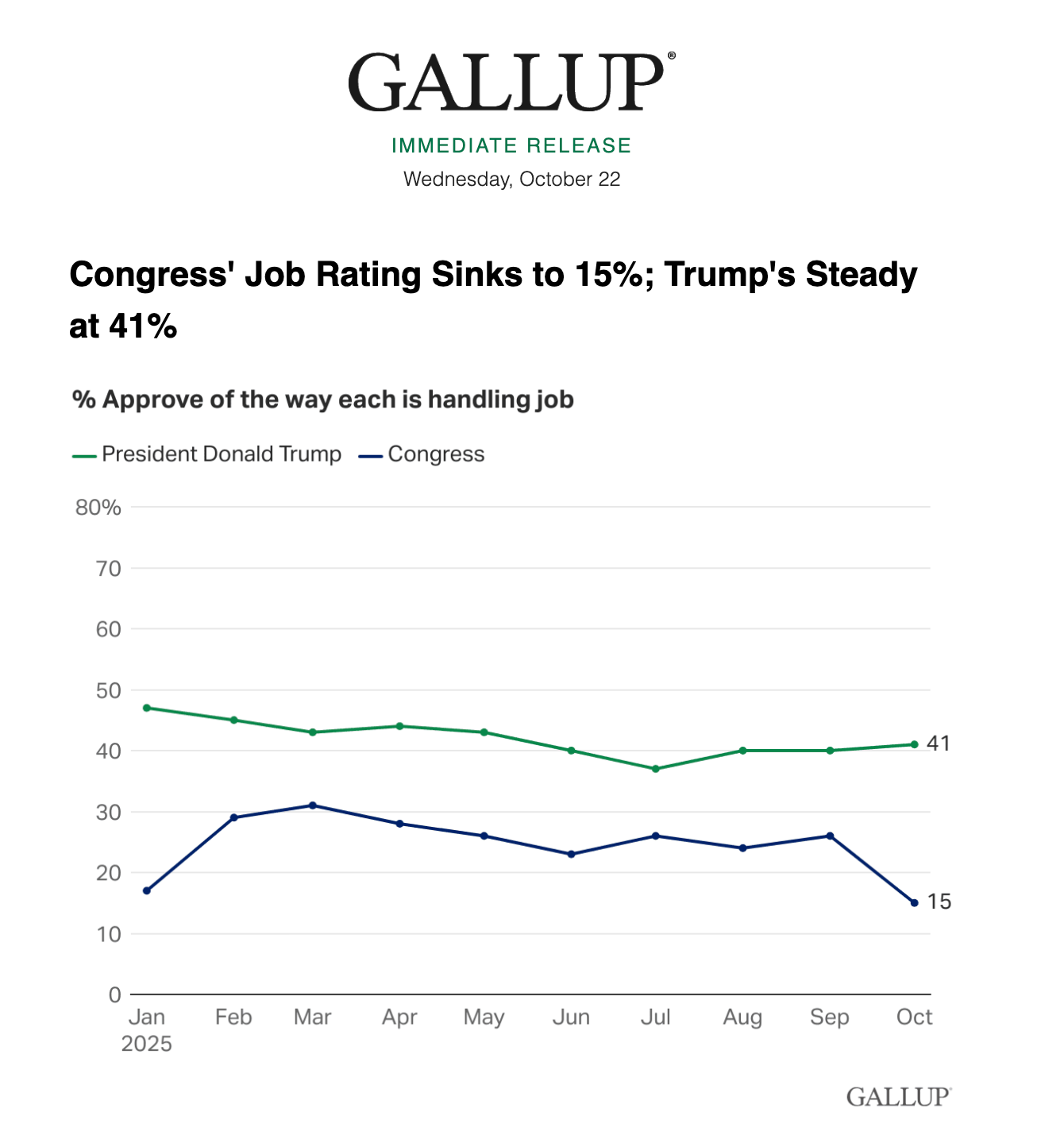
Yet, for congressional leaders, there isn’t any urgency to re-open the government. House Speaker Mike Johnson and Minority Leader Hakeem Jeffries trade jabs back and forth in the media, but the blame game continues to be prioritized over solutions.
Meanwhile, many furloughed workers are about to miss their first full paycheck, federal programs that begin their fiscal year on November 1 are at risk, and a duly elected member of Congress, Arizona Democrat Adelita Grijalva, has not been sworn into office.
Johnson is keeping the House on vacation, the Arizona attorney general filed a lawsuit against him over Grijalva, President Trump is about to leave for a multi-country trip in Asia, and Oregon U.S. Sen. Jeff Merkley held the Senate floor for 22 hours to rail against the president.
There is plenty of political drama. But there is no telling when the shutdown will end while its consequences are about to pile up quickly.
Gallup’s polling numbers show congressional approval at 15%, yet members of Congress don't care. And the reason members of Congress don’t care is because the election system that exists in most states, including congressional elections, ensures elected officials only need to be accountable to a partisan minority to stay in power.
As long as they keep party leaders and their base happy... that is all that matters. And if they don’t? The primaries will be weaponized against them to either get them to fall in line or get rid of them. Just ask Thomas Massie, who now faces a primary challenger who is endorsed by President Trump.
“The shutdown is good politics for both sides. Refusing to budge helps with the only election that matters in most races: the primary,” said Nick Troiano, executive director of Unite America, on a call with reporters Wednesday.
Primaries are like the tailgate before a big game: only the most ardent fans are showing up, usually in face paint, and often a bit drunk. And they want their team to win. Lawmakers know that compromise is seen as betrayal among these party loyalists and could invite a well-funded primary challenger.”
Unite America is a philanthropic venture fund that invests in nonpartisan election reform and publishes research about what it has dubbed the “Primary Problem” across the U.S. It now annually finds that 90% of U.S. House elections are completely safe for the district’s majority party.
In other words, it doesn’t matter what general election turnout looks like, most elections in the U.S. are decided months before November each cycle in taxpayer-funded primary elections that shut out about 24 million independent voters. Unite America found in its research that just 7% of voters in 2024 effectively elected 87% of the U.S. House in party primaries.
This has created the hyper-partisan and divisive political environment voters see today, where government shutdowns are so routine and normalized that MSNBC and CNN and Fox News put up counters on their news programs depicting the days, hours, and minutes of the shutdown.
It’s like it isn’t weird that members of Congress don’t act on the urgency of the situation. It is like it isn’t weird that the people who will suffer the most as a result of the shutdown are not the lawmakers who are responsible for it.
And voters aren’t divided when it comes to the shutdown. A recent AP-NORC poll found that 70% of Americans oppose it. It also found that 65% of respondents believe Democrats should accept the Republicans’ continuing resolution.
But where the divide exists – i.e. not with the voters, but with the parties – can be seen in a recent Quinnipiac University poll that found that 58% of Democratic voters approve of how Democrats in Congress are handling their job.
Which number do people think matters more to the Democratic Party? Which numbers do people think matter more to the Republican Party when pollsters isolate responses from party members?
People are going to struggle to pay their bills. People are going to see government programs they rely on stalled. Many federal employees may end up losing their jobs altogether, but guess who won’t? The vast majority of Congress.
Why? Because they are making their base – the 7-10% of voters that reliably show up in partisan primary elections – happy.
There are only a handful of seats that truly matter to the parties because the thing they care most about is having majority control. This is why voters are seeing mid-decade redistricting in Texas, California, Missouri, and most recently, North Carolina.
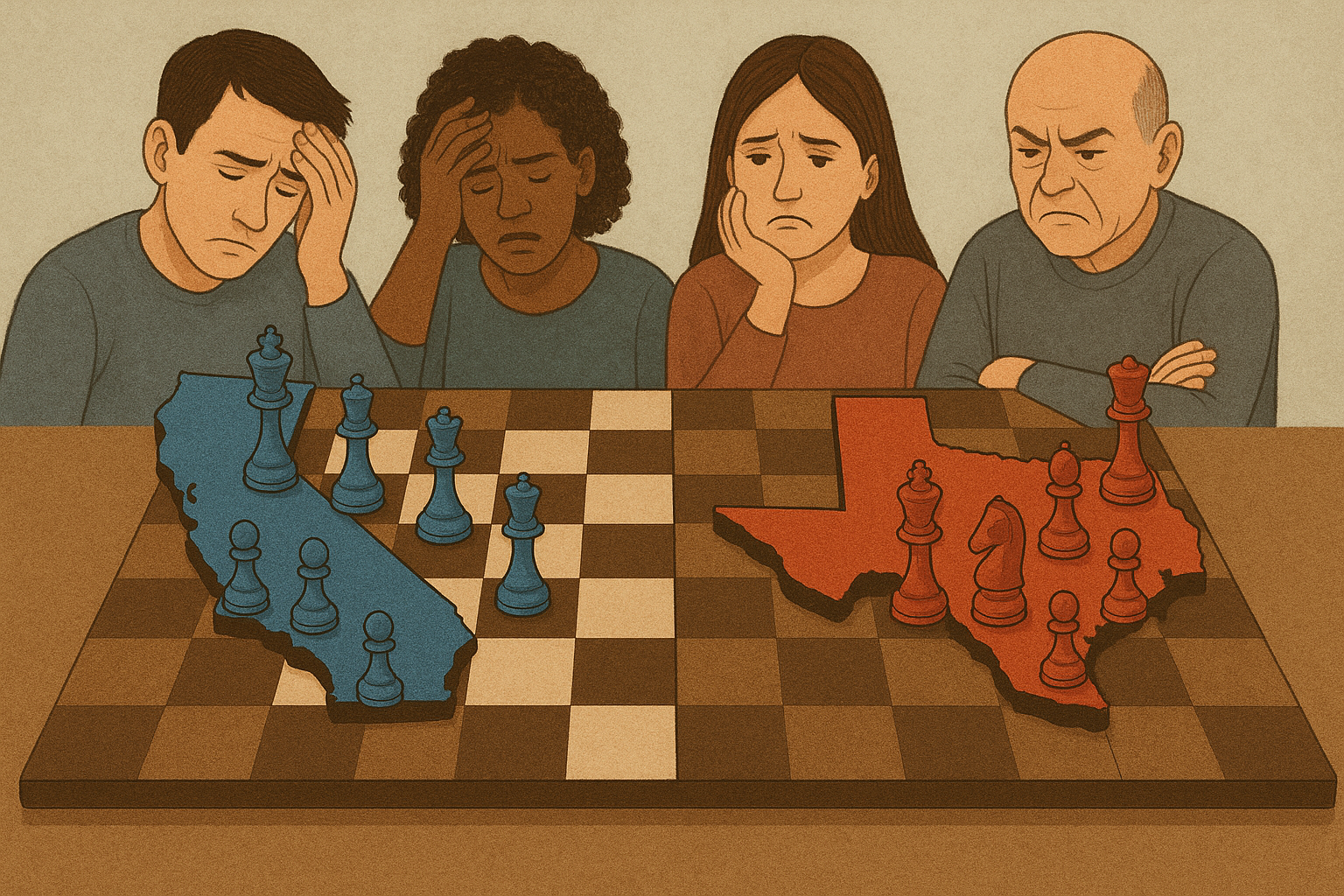
It’s all a power play. It’s all a game to the parties. Voters see what is happening and their enthusiasm for systemic election reform has never been higher.
It is why nearly 200 people on a Friday afternoon joined a virtual call co-hosted by the Independent Voter Project and Open Primaries to talk about legal efforts to end closed primaries – including a recent case out of Florida that made it to SCOTUS.
It is why national media personalities like Chuck Todd and Michael Smerconish support open primary elections. Smerconish is even the lead plaintiff in a Pennsylvania lawsuit challenging the constitutionality of closed primaries in the Commonwealth.
It is why polls show overwhelming support from voters for open primaries, including party members who recognize that the taxpayer-funded elections process should treat all voters equally and not create a second-class status for independent voters.
There is increasing urgency to what is happening in the U.S., because even when the current government shutdown ends, another one will be right around the corner. It is a cycle that will only get worse as voters are denied meaningful, accountable, and representative elections.
 Shawn Griffiths
Shawn Griffiths


